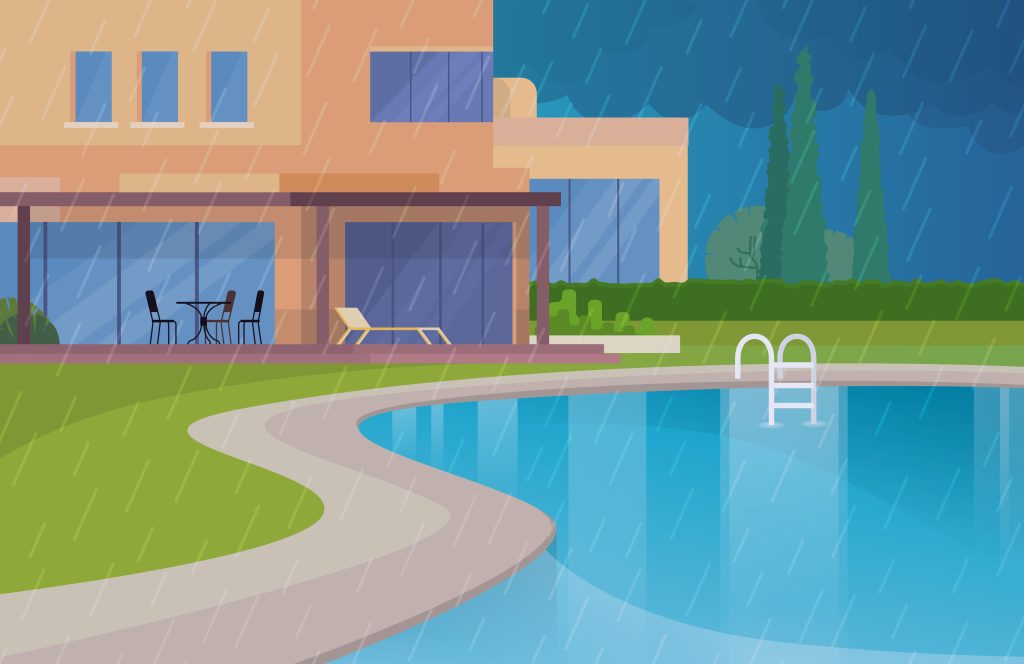Your pool is a luxurious addition to your home and should be a place where you can relax and have fun with family and friends. So don’t let rainwater ruin the fun. Keep your pool safe and enjoyable by following the tips in this article.
So let’s take a deep dive into the effects of rainwater in pools and explore the steps that will keep your pool ready for summer.

Can rainwater change the pH level of a pool?
Rainwater can change the pH level of a pool, potentially leading to discomfort for swimmers and damage to the pool’s equipment and surfaces. When rainwater enters the pool, it can dilute the chemicals used to balance the pool water.
Maintaining the pH level of your pool is important for safety and comfort. If the pH level is too high or too low, it can cause skin irritation, red eyes, and other health problems.
Luckily, these issues can be avoided with a few simple steps. When rainwater dilutes your chemical levels, rebalancing as soon as possible will minimize any adverse effects. To get started, grab a pool chemical testing kit and make adjustments to your chemical levels as needed.
Can rainwater cause overflow?
Periods of heavy rain can cause your pool to overflow. This may cause serious issues by affecting the pool deck and, if your pool is elevated, any equipment that may be located below the pool. If the pool is located within close proximity to the home, water intrusion may be possible.
The majority of pools built by Aqua Blue Pools have an overflow line installed to aid in drainage. If your pool does not have a mechanism installed to prevent this, the use of a sump pump at the pool equipment may be needed to assist in maintaining the proper water level.
If you are having trouble managing the water in your pool, consider using an expert pool company that can help you to create a safe and comfortable swimming environment. Our trained team of pool cleaners ensures your pool remains sparkling and usable when you need it most.
Contact our team to find out more about our services.


